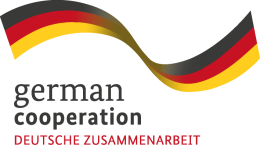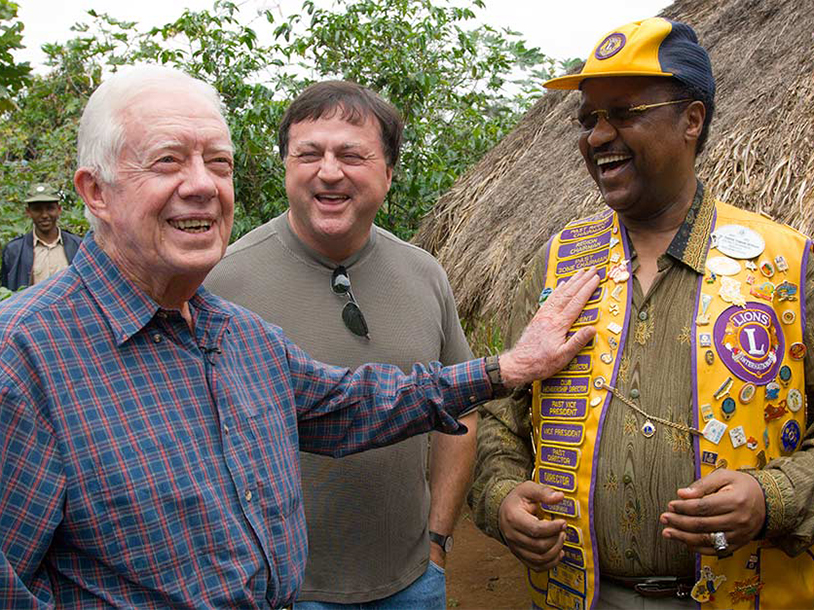Featured July 2019

The Government of Germany has contributed over $1.5 million towards the Carter Center’s conflict resolution and disease eradication work in Africa and the Middle East since 2016.
Support for Peace in Syria
Growing discontent with the government in Syria led citizens to rebel against President Bashar al-Assad in 2011. The ensuing civil war has displaced more than half of the Syrian population and claimed over 500,000 lives.
Germany is one of the largest contributors worldwide to help ease the suffering of people in Syria and neighboring countries. It supports the Carter Center's work to bring stakeholders together to develop visions for a political resolution to the conflict in line with UN Security Council Resolution 2254, and to channel their ideas to top-level mediation processes. Workshops and consultations seek to address contentious issues, bridge communication gaps between different components of Syrian society, and develop innovative ideas for conflict resolution.
In parallel, the Center monitors, documents, and analyzes levels of violence throughout the country to better inform peacebuilding efforts. It has documented and mapped over 100,000 conflict events in Syria, the shifting relations between thousands of armed groups, and critical front-line changes. This information allows The Carter Center to provide mediators and conflict responders with up-to-date, detailed analysis of developments throughout the country.
Monitoring the Peace Process in Mali
In addition to supporting the Center’s conflict resolution effort in Syria, the German government assists with the Center’s peacekeeping work in Mali. 2015 Peace Agreement between the government and two coalitions of armed groups established the outline for lasting, country-wide peace.
In 2017, The Peace Agreement Monitoring Committee appointed The Carter Center to the role of Independent Observer over the country’s progress towards peaceful resolution. The position of Independent Observer entails objective evaluation and reporting on the Agreement’s implementation. The role also attempts to identify any hindrances to implementation, assign responsibilities to signatory parties and guarantors of the Agreement, and provide recommendations for future advancement.
Guinea Worm Eradication Program
Alongside contributions to the peace programs, Germany supported the Center's health programs with a commitment of nearly $500,000 to the Guinea Worm Eradication Program. The Carter Center, alongside its partners, has led the international fight against Guinea worm disease since 1986, decreasing the global annual incidence of the disease by 99.99 percent.
Germany contributed to the Guinea worm research agenda that seeks to better understand the peculiar epidemiology of animal infections and reduce their prevalence to zero. Based on the findings of human and animal health experts, academics, and modelers from around the world, the Center now understands that domestic dogs and other animals can contract Guinea worm through consumption of raw fish entrails or other inadequately cooked aquatic animals. Studies have also shown that the worms infecting humans and animals are not genetically different.
German support contributed to an operational study treating dogs with Advantage Multi® to evaluate the drug’s effectiveness in preventing or curing Guinea worm infections, as well as another study focused on the ecology of Guinea worms in dogs.
The Carter Center is honored to partner with the German government in its efforts to wage peace and fight preventable disease on a global scale.
Please sign up below for important news about the work of The Carter Center and special event invitations.

Browse our archive of Carter Center featured partners »